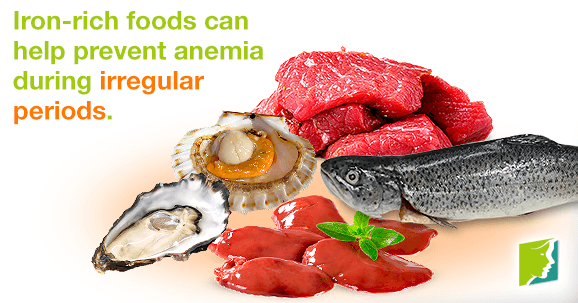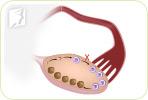Irregular periods can be a source of frustration for many menopausal women. Typically, women with irregular periods experience a shorter or a longer number of days between their normal menstrual cycles. Anything shorter than 21 days or longer than 35 days is considered to be irregular. Understanding normal and abnormal cycles can help you decipher what your period is communicating about your overall health.
Lifestyle Changes Can Lead to Irregular Periods
Significant weight loss, poor nutrition, stress, excessive exercise, and even not enough sleep can result in irregular periods. Many woman are relieved about not having to deal with their monthly visitor. However, if your lifestyle is causing missed periods, this may be a sign your body does not have enough resources, such as rest, vitamins, and nutrients, to have a menstrual cycle.
Irregular Periods Can Affect Your Chances of Getting Pregnant
Irregular periods can make getting pregnant more difficult. Document your fertility signs, especially cervical fluid, to help you determine when you're ovulating. Longer cycles, an indication of irregular ovulation within a normal monthly cycle, could also be a result of a condition known as anovulation. If you have irregular periods and are trying to get pregnant, it is important to talk to your doctor about what you are experiencing. If you are experiencing irregular periods and do not want to get pregnant, this makes it even more important to make sure you are using protection or birth control when you have sex.
Irregular Periods Can Indicate Polycystic Ovarian Syndrome
Approximately one out of 100 women under the age of 40 experience an irregular period that could lead to polycystic ovarian syndrome (POI). This condition causes the ovaries to produce less estrogen. Symptoms of POI include excessive hair growth, weight gain, dandruff, acne, and infertility. If left untreated, POI can lead to more serious complications, including endometriosis, ovarian cancer, and heart disease.
Irregular Periods Are Often Normal
About 30% of women experience irregular periods during their reproductive years. For women taking certain types of birth control, periods can cease up to four times a year and cause your period to be irregular. A missed, early, or late period and heavy bleeding (menorrhagia) can also indicate an irregular period. A woman's body is not a perfectly timed clock, and many factors can influence a menstrual cycle, and most of the time this is perfectly normal.
Natural Treatments May Help With Irregular Periods
Because blood needs iron to carry oxygen throughout the body, and irregular periods may cause you to lose more blood than normal, it is important that you get enough iron. Iron-rich foods include clams, oysters, organ meats, beef, pork, poultry, and fish. If your body has enough of an iron-deficiency, you may develop anemia, and most doctors recommend iron and vitamin C tablets to treat this.
It is always advisable to consult with a healthcare professional if you are experiencing an abnormal menstrual cycle. If your irregular periods are being caused by an underlying medical condition, a doctor may be able to offer you specialized advice and medical treatment to help. Click here for more information about irregular periods treatments.
Sources
- Mayo Clinic Staff. (2014). Iron-deficiency Anemia. Retrieved from http://www.mayoclinic.org/diseases-conditions/iron-deficiency-anemia/basics/treatment/con-20019327
- The New York Times. (2010). Menstruation-Absent. Retrieved from http://www.nytimes.com/health/guides/symptoms/menstruation-absent/overview.html
- University of Maryland Medical Center. (2012). Menstrual Disorders. Retrieved from http://umm.edu/health/medical/reports/articles/menstrual-disorders




